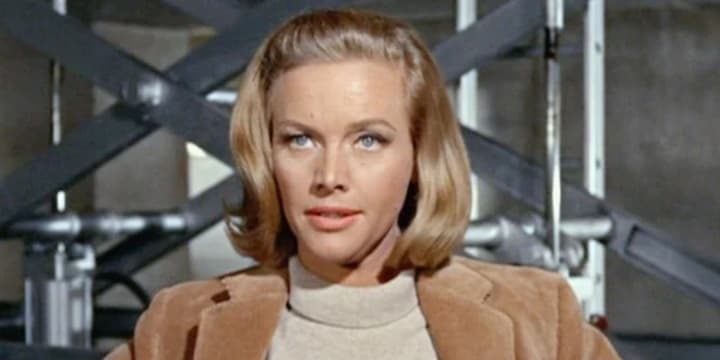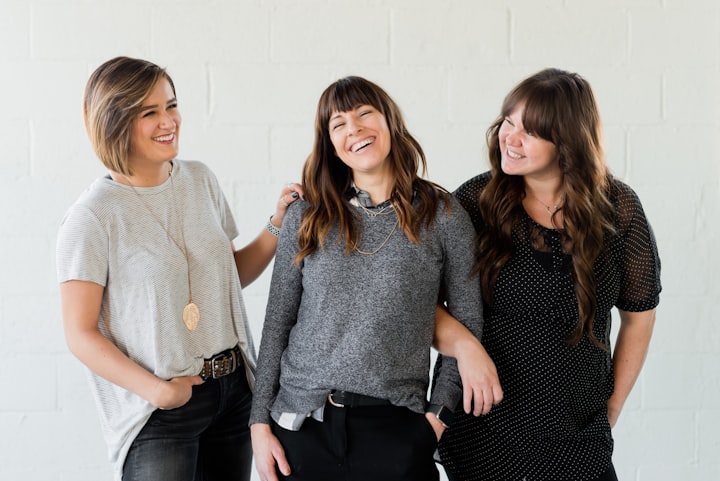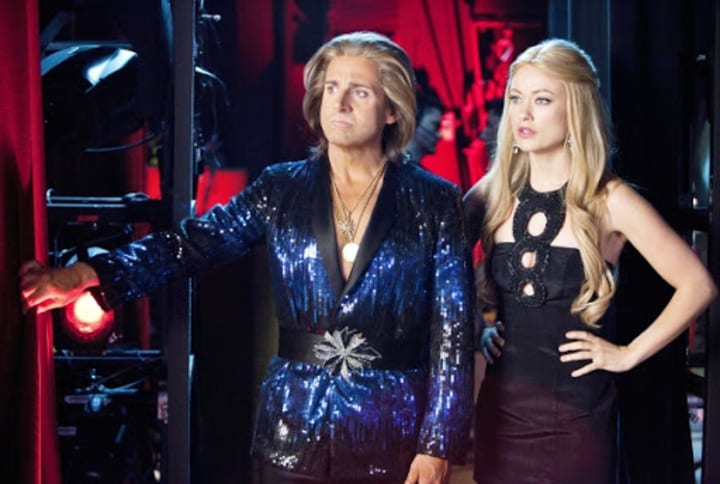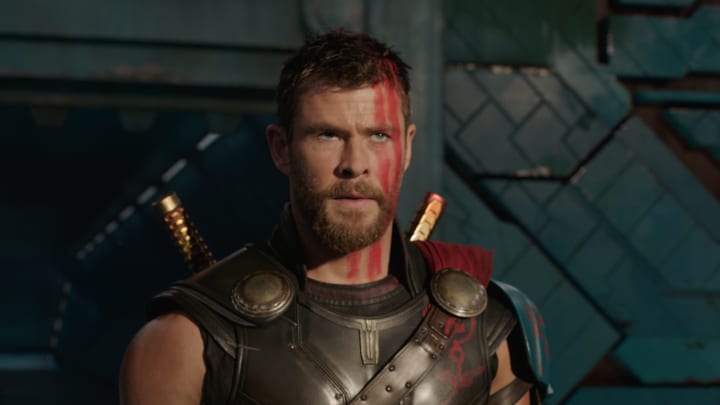A Male Screenwriter's Guide to Writing Female Characters
Stop making them get kidnapped!

I'm Jonathan Sim, and I'm a screenwriter. I'm not a professional, but I have a few years of experience writing feature-length scripts, and I am writing about a topic that has been bugging me recently.
Since No Time to Die is currently scheduled to be released in November, I have been watching every James Bond movie leading up to it. I began with Dr. No in 1962, and something that has been quite bothersome to me is the most famous trope of the long-running series: the Bond girl.
Bond girls are typically sexy love interests for James Bond, and their names are ridiculous. The Bond girl in Goldfinger, for example, is infamously named Pussy Galore. And I don't know what the Galore couple was thinking when they were naming their child, but I'm guessing Pussy was the winning name after Tits, Asses, and Bitches.

The Bond girl is an absurdly sexist trope in the first few Bond films, with female characters having almost no development, personality, or nuance besides being scantily clad objects that serve no purpose in life except to have sex with Bond.
I have not yet seen the newer Bond films, but after the poor taste Live and Let Die left in my mouth, I'm not in a big rush to continue the series. And one could argue that there were different expectations for gender roles when these older Bond films came out.
However, even in recent films, Hollywood is filled with subtle sexism, and it's something most noticeable in the comedy genre. This leads to my first tip in my guide to writing female characters.
Stop Writing Archetypes

There's a prevalent trend in male-led comedies where the female leads have nothing unique about them because their character development is thrown to the backseat to fit more jokes for the funny male leads.
If you want to write women respectfully, you should avoid the archetypes. One of them is the boring wife. These are the male protagonists' wives, and there's a good chance that they won't have a backstory or any real depth because their only purpose in the story is worrying about their husbands.
You see these in films like The Hangover and Evan Almighty, where the wives have no personalities and only exist to worry about their up-to-no-good husbands. I'm not saying these characters are unrealistic, but I am saying that female characters deserve more than this done-to-death archetype.

Another archetype to avoid is the sexy girl. To clarify, there is nothing wrong with women having sexuality in films, but what I see too often are female characters who are sexualized to the point of unbelievability. As a result, they end up feeling more like male fantasies than actual people.
This archetype is something we always see in Baywatch or films like Talladega Nights: The Ballad of Ricky Bobby, one of the movies that inspired this article. These women are always acting sexual and doing sexy things to turn on the male leads. Again, I'm not saying people like this don't exist, but almost every film with characters like this is written by men 99% of the time. This leads me to my next point.
Set Up the Romance

Many films like to have romance. Even non-romance films will typically have a guy and a girl falling in love and sharing a kiss by the end of the movie, but love is a lot more complicated than movies make it seem.
Chances are if you have a movie with a male lead and another main character who is female, the woman will always fall in love with the man. She's never already in a relationship with someone else, and the man can treat her as poorly as she wants, and somehow, the woman magically falls in love with him anyway.
This brings me to Talladega Nights again, a movie that I instantly knew was written by men once I saw the treatment of the female characters. I alluded to Carley when talking about overly sexualized characters, but now I'm going to write about Susan, portrayed by Amy Adams.
Susan is barely in much of the beginning of the film. She is Ricky's assistant, and she disappears from the movie until she suddenly happens to bump into Ricky one night. She gives him an inspiring monologue before sexily crawling on the table in public, and the two end up in a romantic, sexual relationship.
While romance is not a critical aspect of the film, it was not set up at all. Ricky absentmindedly autographed Susan's forehead in an earlier scene, but there was nothing romantic between them until this one scene. As much as I'd like to believe Amy Adams will run into me on a random night, fall in love with me, crawl across a table, and make out with me, that wouldn't happen.
But it happens in Talladega Nights because women exist in male-led comedies as either boring and disposable or sexual male fantasies. They don't sell the romance in Talladega Nights because Susan has no backstory or anything unique, and you don't buy that Ricky and Susan love each other because it came out of nowhere.

Another film that commits this mistake is The Incredible Burt Wonderstone. Jane (Olivia Wilde) initially doesn't like Burt (Steve Carell) due to his disrespectfulness to her and his co-workers; Burt also spends the entire film getting Jane's name wrong.
However, after Burt softens up throughout the film, the two immediately find mutual love, despite very few scenes showing their flirtation, and they also end up having sex. As you can see, many films have women written from a typical male perspective rather than taking the time to set up a realistic mutual connection.
The lesson here is to spend time with both your male and female characters. Flesh them out and make them compatible before jumping straight into the two of them having sex.
Quit Kidnapping Them!

My examples have generally been based around comedy films so far, but I'm going to shift this article to an age-old trope found in action movies.
"I'm the bad guy! And I've kidnapped your wife! And you're going to cooperate and listen to my demands, or else she dies!" Think about it; so many action films have this trope where the girl is the damsel in distress who requires the strong male action hero to save them.
For the past few months, I've been keeping a list of every film where this trope happens, and there are currently over 100 movies on this list. This includes Die Hard, Speed, Mission: Impossible III, Deadpool, Taken, Commando, Raiders of the Lost Ark, Iron Man 3, Rush Hour, Point Break, every Raimi Spider-Man film, and I'm barely even scratching the surface.

This is one of the most tired movie clichés in cinematic history, and Hollywood can't seem to get enough of it. In fact, an upcoming Bruce Willis action movie named Hard Kill features terrorists kidnapping a billionaire's daughter.
Why have women been reduced to a criminal's asset? It's tiring seeing every action movie feature an evil guy holding a woman in front of him, holding a gun to her ear as the hero points his weapon at the both of them. You rarely ever see the genders reversed in this familiar situation, either.
I'm not saying movies that use this cliché are immediately bad, but at this point, it's just an uninspired plot device that reduces women to being weaker than men, always requiring men to rescue them. Avoid this trope.
Give Them Nuance

Here's the thing: it's always refreshing to see films like Lady Bird and Bridesmaids because those movies are funny, dramatic, and understand women. This may be attributed to the fact that women wrote those movies, and male screenwriters like me could learn a thing or two from films like those.
It's essential to develop female characters the way you develop male characters. That is, give them a unique personality or a surprising backstory or something along those lines. This makes them feel like real people rather than a man's idea of what a woman is.
Your female characters should grow organically. The best type of character is one that your audience can understand and sympathize with. For example, take Thor Odinson from the Marvel Cinematic Universe. He's the all-powerful God of Thunder, so it's hard to relate to him, right?

Well, that's when films like Thor: Ragnarok and Avengers: Infinity War came in. These movies gave Thor a sense of humor while also putting him in heartbreaking situations. While he's a God, his emotions are human, and we connect with him on his feelings of grief and guilt while also enjoying his presence because of his humor.
Now, let's take another MCU character: Captain Marvel. She is another powerful superhero, but she spends much of her film stubborn and stoic. It's difficult for audiences to connect with a blank slate, and her general lack of vulnerability fails to endear people to her.
But it took Thor a few movies to become a fan favorite, so I'm hoping that Captain Marvel receives the nuance she deserves in later installments. I think it's essential to have audiences understand a character's beliefs and actions, and see themselves in these larger-than-life characters.

The issue is female characters are often written with either everything or nothing. Audiences are likely to connect with a middle ground, and I believe that all characters, male and female, deserve a vulnerability to make the audience care about them.
People will generally point to Ellen Ripley and Sarah Connor as great female characters. They are, but a woman doesn't need to kick ass to be a good character. A recent film named Palm Springs surprised me by giving the female lead portrayed by Cristin Miloti a sense of humor that rivaled the male lead, which is rare for a comedy.
Conclusion

While I can stand on my soapbox and preach all day, I will be honest. I've broken some of these rules before; I once wrote an action movie trilogy where the female lead gets kidnapped in every single one. I'm not proud of it at all.
As a screenwriter, I have a lot more to learn, but I just wanted to share how I felt about how female characters are typically written. If you're a screenwriter, keep my tips in mind when writing your next script: flesh out the romance, give them nuance, avoid the archetypes, and please don't kidnap them! Write them with respect and know that women are not too different from men.
There's a reason why I haven't watched the movie people have been talking about recently, 365 Days. And it's because from what I've heard, it breaks every tip in this article. So don't watch 365 Days, and instead, watch a few movies with great female characters.
I'd recommend Lady Bird, Little Women, Wonder Woman, Bridesmaids, Frances Ha, Palm Springs, The Hunger Games, Us, Alien, The Terminator, Star Wars: The Force Awakens, Hidden Figures, Mulan, and Marriage Story.
Until next time, thank you for reading.

About the Creator
Jonathan Sim
Film critic. Lover of Pixar, Harry Potter, Star Wars, Marvel, DC, Back to the Future, and Lord of the Rings.
For business inquiries: [email protected]






Comments
There are no comments for this story
Be the first to respond and start the conversation.